SMART GUYS DON’T just hit the gym without a plan. No, ripping through round after round of biceps curls, bench presses, or squats on their own, half-heartedly puttering around a few other accessory movement, and then calling it a day doesn’t count. Successful training regimens have structure. While there are many different strategies you can use to organize your workout routine, one of the most balanced training splits for general fitness and muscle building goals is known as the push-pull-legs plan.
The idea behind the plan is fairly simple. You dedicate one day of training to pushing movements (think presses), one day to pulling movements (rows of all varieties), and one day to lower body-focused movements. That way, you’ll be able to train your whole body in a more balanced and efficient manner than simply dedicating an entire workout to one single muscle group at a time, as is common in bodybuilding-style splits. Instead, you’re planning around movement patterns, which can make it easier to guarantee that your training plan hits every mark you need for a healthy, functioning body.
Depending on your goals and experience level, it’s the type of routine that you can use once in a week for a three-day split or even double-up for a six-day split, hitting each workout twice.
What Push Day Workouts Are
You’ll need to understand a bit more about the makeup of each day before implementing this type of split.
“Push day workouts utilize chest, triceps, and shoulders and focus on movements that involve pushing loads away from your torso, such as bench presses, overhead presses, and triceps skull crushers,” says Men’s Health fitness director Ebenezer Samuel, C.S.C.S. “Almost every pushing movement will end with your arms straightening at the elbow. Your abs and glutes will also get underrated work in push day workouts, providing stability to your spine on overhead pressing movements.”
In other words, this will be a big upper body training day.
The Benefits of a Push Day Workout
Just remember, there is no “push” day without the counterbalance of the pull. “Push day workouts are generally performed as part of a push/pull/legs training split (or, as we’ve explained before, a pull/push/legs training split),” Samuel continues. “That helps you train your upper body with balance, instead of over-focusing on mirror muscles. Aesthetically, this will promote a more symmetrical, complete physique, and it’ll also help bulletproof your shoulders and lower back.”
This type of structure allows you to train efficiently while still hitting just about every mark you could want for general fitness goals.
Samuel designed two distinct push day program templates: One for beginners, and one for more advanced lifters. The difference between the two is mostly volume, or the total amount of work you’ll fit into each session.
The Push Day Workout for Beginners
The beginner push day is designed to hit all the major muscle groups involved in pushing (the chest, triceps, and shoulders) with three exercises. Samuel notes that advanced pushing workouts are often more closely focused on the chest, the largest and most powerful of your pushing muscles. He designed this beginner workout to be more concerned with function, however, hitting three critical ideas.
The Push Day Warmup
“Do one round for each arm to protect your shoulders and set yourself in good position to dominate your push exercises,” Samuel advises. You’ll need a light resistance band for this one.
How to Do It:
- Start a half-kneeling position your left knee on the ground, holding the ends of the resistance band in each hand. Squeeze your abs to keep your ribcage down.
- Raise your right arm up slightly above shoulder level in the same plane as your torso. Keep your thumb pointing toward the ceiling. Maintain your grip on the band with your left hand, too, holding at roughly even with your right elbow.
- Fire your rhomboids (back) and rotator cuff muscles to pull the resistance band straight back across your chest, like shooting a bow and arrow. Keep the elbow of your pulling arm close to the body the whole way; make sure your stable arm stays completely straight.
- Repeat for 12 to 15 reps.
First Exercise: Bench Press Variation
Samuel suggests that you start with the exercise that will allow you to move the most weight. For just about everyone, that means some form of bench pressing. “This will be your most natural pushing motion,” he says. “If you’ve ever pushed anything away from your body, you’ve worked through this pattern.
Examples: Dumbbell Bench Press, Barbell Bench Press, Dumbbell Incline Press, Pushup, Hollow Body Floor Press
Sets and Reps: 4 sets of 8 to 10 reps
How to Do It:
- Sit on the bench holding a pair of dumbbells, with your feet flat on the floor.
- Lie back on the bench, shifting the dumbbells to your chest with your elbows at a 45 degree angle relative to your torso. Drive your shoulders into the bench then squeeze your shoulder blades, abs, and glutes to create full-body tension.
- Press the weight straight up, squeezing your pecs at the top.
- Lower the weight back down to about an inch above your chest.
Barbell Bench Press
How to Do It:
- Lie back on the bench under the bar, with your feet flat on the floor. Drive your shoulders into the bench then squeeze your shoulder blades, abs, and glutes to create full-body tension.
- Raise your arms up to grip the barbell. Everyone’s ideal grip will be different, but aim to start with your hands at or just slightly further than shoulder-width. Squeeze the bar and aim to create internal shoulder rotation, engaging your lats and “breaking” the bar.
- Lift the bar off the rack. Lower it to your chest, aiming to keep your elbows at a 45 degree angle relative to your torso.
- Press the weight straight up, squeezing your chest at the top.
How to Do It:
- Sit on the incline bench, holding a set of dumbbells. Your feet should be flat on the floor, and your back flat on the pad. Squeeze your shoulder blades to drive them back into the bench, and squeeze your abs and glutes.
- Kick the weights up to your chest. Your elbows should be at a 45 degree angle relative to your torso.
- Press the weights straight up overhead to the ceiling. There’s no need to knock them together at the top. Squeeze your chest at the top position.
- Lower the weights back down to your chest, but there’s no need to go low enough to tap your chest on each rep. Descend down as low as your shoulder mobility allows before the next rep.
How to Do It:
- Start in a high plank position, with your palms flat on the floor, stacked directly below your shoulders.
- Squeeze your shoulders, glutes, and core to create full-body tension. Your spine should form a straight line, with a neutral spine.
- Bend your elbows to descend to the floor, stopping with your chest just above the ground. Your elbows should be at a 45 degree angle relative to the torso.
- Press back up off the floor, raising up to the top position with your elbows fully extended.
How to Do It:
- Start lying on the ground, holding a pair of dumbbells at chest-level, with your elbows at 45 degrees relative to your torso. Squeeze your shoulders into the floor, then squeeze your abs and glutes.
- Raise your shoulder blades and feet up off the ground. Drive your lower back into the floor.
- Press the dumbbells straight up, squeezing your chest at the top.
- Lower with control to rest your elbows on the floor before engaging in the next rep.
Second Exercise: Overhead Press
Shift your focus from your chest to your shoulders and hone your ability to move overhead with this next exercise. Samuel prefers the half-kneeling single-arm shoulder press, but other overhead variations (like the dumbbell military press) will do.
“If you have shoulder issues, do a seated dumbbell overhead press instead, and set the incline of your bench as high as it can go while stopping short of perpendicular with the ground,” he advises.
Examples: Overhead Dumbbell Press, Half-Kneeling Kettlebell Press, Landmine Press
Sets and Reps: 3 sets of 8 to 10 reps (per side, when applicable)
How to Do It:
- Stand with your feet shoulder-width apart, holding the dumbbells. Squeeze your shoulder blades, abs, and glutes to create full-body tension (and to prevent your ribcage from flaring once you initiate the press).
- Raise the weights up to shoulder height. Keep your arms in the scapular plan (a few degrees in front of your torso) and your forearms perpendicular to the ground.
- Press straight up, as high as you can with your ribcage tucked.
How to Do It:
- Get into a half-kneeling position on the ground, holding the kettlebells in each hand. Squeeze your core and glutes to make it a strong position.
- Raise both kettlebells into the racked position, holding the handles and resting the weights on your forearms.
- Press both kettlebells straight up.
How to Do It:
- Place a barbell into a landmine attachment or position it in the corner of a room.
- Get into a half-kneeling position. Squeeze your glutes and core to create plenty of tension, and grab the end of the barbell with the same arm as your forward leg (i.e., right arm if your right leg is forward and your left knee on the floor).
- Press the barbell head up and away, squeezing your mid-back muscles at the top of the rep.
- Lower the weight under control back to your shoulder.
Third Exercise: Isolation Triceps
Finish the workout with your lone isolation exercise, focusing on your triceps. Keep the weight lighter here, and focus on mind-muscle connection.
Examples: Triceps Pressdown, JM Press, Skull Crusher, Lying Triceps Extension
Sets and Reps: 3 sets of 10 to 12 reps
How to Do It:
- Stand holding the cable rope at chest height with a neutral grip, with your shoulders, abs, and glutes engaged to create tension. Your elbows should be tight to either side of your torso.
- Press down, moving only at the elbows. Squeeze your triceps at the bottom of the cable’s range.
- To avoid cheating, support your back on an incline bench and perform the movement.
How to Do It:
- Lie back on the bench, holdng a pair of dumbbells in a neutral grip or a barbell or EZ bar in an overhand grip. Drive your shoulders into the bench, then squeeze your shoulders, abs, and glutes.
- Press the weight straight up, then shift your upper arms so that you’re at a 92 degree angle relative to your torso.
- Lower the weights down and drive your elbows down to your ribs, so the tops of the weights tap your shoulders.
- Press back up, returning to the starting position.
How to Do It:
- Lie back on the bench, holding a pair of dumbbells in a neutral grip or a barbell or EZ bar in an overhand grip. Drive your shoulders into the bench, then squeeze your shoulders, abs, and glutes.
- Press the weight straight up, then shift your upper arms so that you’re at a 92 degree angle relative to your torso.
- Moving only at the elbows, lower the weights down toward your head.
- Extend your arms back to the starting position, squeezing your triceps.
How to Do It:
- Grab a dumbbell, wrapping your thumbs around each other touching one side of the bell.
- Lie back on a bench, placing your head near the end of the bench. Squeeze your glutes and focus on driving your feet into the ground.
- Reach back as far as you can with the dumbbell. Begin to drop the dumbbell behind your head, driving your elbows toward the ceiling. Avoid flaring your elbows—keep your arms tight and close to your torso.
- Straighten your elbows to drive the weight up, moving your elbows forward into shoulder extension.
The Advanced Push Day Workout
Leveling up means expanding the workout from three exercises to five. Since you’re working with a higher overall volume, Samuel notes that it’s important to tweak the positioning of shoulder-focused movements. “You’ll do your shoulder training near the end of each session, when you’re weakest, and you’ll focus on rear delts, incorporating some light pulling into push day to help safeguard your shoulders in the long term,” he says.
First Exercise: Bench Press
You’ll still lead off with a bench press variation after your warmup, ensuring you’ve hit your largest pushing muscle (your chest) and challenge both shoulders and triceps with load to get things started.
Options: Dumbbell Bench Press, Barbell Bench Press, Incline Dumbbell Press, Pushup, Hollow Body Floor Press
Sets and Reps: 4 sets of 8 to 10 reps
Dumbbell Bench Press
How to Do It:
- Use the form cues listed above in the Beginner’s section.
Barbell Bench Press
How to Do It:
Dumbbell Incline Press
How to Do It:
- Use the form cues listed above in the Beginner’s section.
Pushup
How to Do It:
- Use the form cues listed above in the Beginner’s section. Consider adding load with a weighted vest or plate or using a deficit pushup.
Hollow Body Floor Press
How to Do It:
- Use the form cues listed above in the Beginner’s section.
Second Exercise: Fly Variation
Your chest muscles function to push load away from you. They also adduct your upper arm (essentially bringing your upper arm toward the midline of your body), as they do in any chest fly variation. Attack this movement as your second exercise.
Options: T-Bench Fly, Cable Fly, Kneeling Resistance Band Fly
Sets and Reps: 3 sets of 10 to 12 reps
How to Do It:
- Start sitting on the bench with a pair of dumbbells on your thighs in a neutral grip. Lower yourself down so that your shoulders are on the bench, and your legs form a bridge position. Squeeze your shoulder blades, abs, and glutes.
- Press the dumbbells straight up above your chest. Drive your shoulders into the bench and squeeze your glutes.
- Open up your arms and lower them down to the bench, taking 3 to 4 seconds. Come to a complete stop and rest your upper arms and elbows on the bench for a beat.
- Fly your arms back up to the starting position, squeezing your chest hard at the top.
How to Do It:
- Start standing in the middle of a cable machine, with the cables set just above your shoulders. Grasp the handles near the base of your palm, then step forward so that your feet are pointed forward. Squeeze your abs to keep your hips square and drive the cables forward.
- Squeeze your shoulder blades and keep that tension for the entire round. This will help to keep your shoulders in proper position.
- Open your arms back up as wide as you can while maintaining proper posture, then fly your hands back together, squeezing your chest as you drive your pinkies up. Don’t cross the cables.
How to Do It:
- Set a band at a height slightly above your shoulder when you’re in tall kneeling position. Kneel in front of the band, glutes and abs tight, right arm grasping the band, left foot on the ground.
- Keeping your hips and shoulders square to the front and a slight bend in your elbow, perform a fly rep, pulling the band in front of you, wrist at about belly-button height. Hold when you get to this position.
- Tighten your core and shift your left leg back so you’re kneeling on both knees. Shift back to the starting position. Keep your hips and shoulders square to the front as you do this.
- Return the band to the start position.
Third Exercise: Rear Delt Variation
You’ve focused on the chest on your first two motions. Before you shift to the shoulders, work to fire up your mid-back muscles and rear delts with a rear delt fly. This will also help with shoulder symmetry, according to Samuel, who says most guys overtrain their front shoulders.
Options: Chest-Supported Rear Delt Fly
Sets and Reps: 3 sets of 12 to 15 reps
How to Do It:
- Set an incline bench to a relatively low angle. Sit on the bench holding a pair of dumbbells and lean down so that your chest rests on the back pad.
- Plant your feet on the ground and squeeze your glutes and ab muscles; your face shouldn’t be resting on the bench pad.
- Squeeze your shoulder blades to lift the weights out in a wide arch, keeping a slight bend in your elbows rather than fully straightening your arms.
- Pause for a beat at the top, emphasizing the squeeze to your shoulder blades.
- Lower back down to the starting position with control.
Fourth Exercise: Overhead Press
Now shift to attacking your overall shoulders with an overhead press variation.
Examples: Overhead Dumbbell Military Press, Half-Kneeling Single-Arm Press
Sets and Reps: 3 sets of 8 to 10 reps
Overhead Dumbbell Military Press
How to Do It:
- Use the form cues listed above in the Beginner’s section.
Half-Kneeling Single-Arm Press
How to Do It:
- Use the form cues listed above in the Beginner’s section.
Fifth Exercise: Isolation Triceps
Examples: Triceps Pressdown, JM Press, Skullcrusher, Lying Triceps Extension
Sets and Reps: 3 sets of 10 to 12 reps
Triceps Pressdown
How to Do It:
- Use the form cues listed above in the Beginner’s section.
JM Press
How to Do It:
- Use the form cues listed above in the Beginner’s section.
Skullcrusher
How to Do It:
- Use the form cues listed above in the Beginner’s section.
Lying Triceps Extension
How to Do It:
- Use the form cues listed above in the Beginner’s section.
Brett Williams, a fitness editor at Men’s Health, is a NASM-CPT certified trainer and former pro football player and tech reporter who splits his workout time between strength and conditioning training, martial arts, and running. You can find his work elsewhere at Mashable, Thrillist, and other outlets.
Ebenezer Samuel, C.S.C.S., is the fitness director of Men’s Health and a certified trainer with more than 10 years of training experience. He’s logged training time with NFL athletes and track athletes and his current training regimen includes weight training, HIIT conditioning, and yoga. Before joining Men’s Health in 2017, he served as a sports columnist and tech columnist for the New York Daily News.


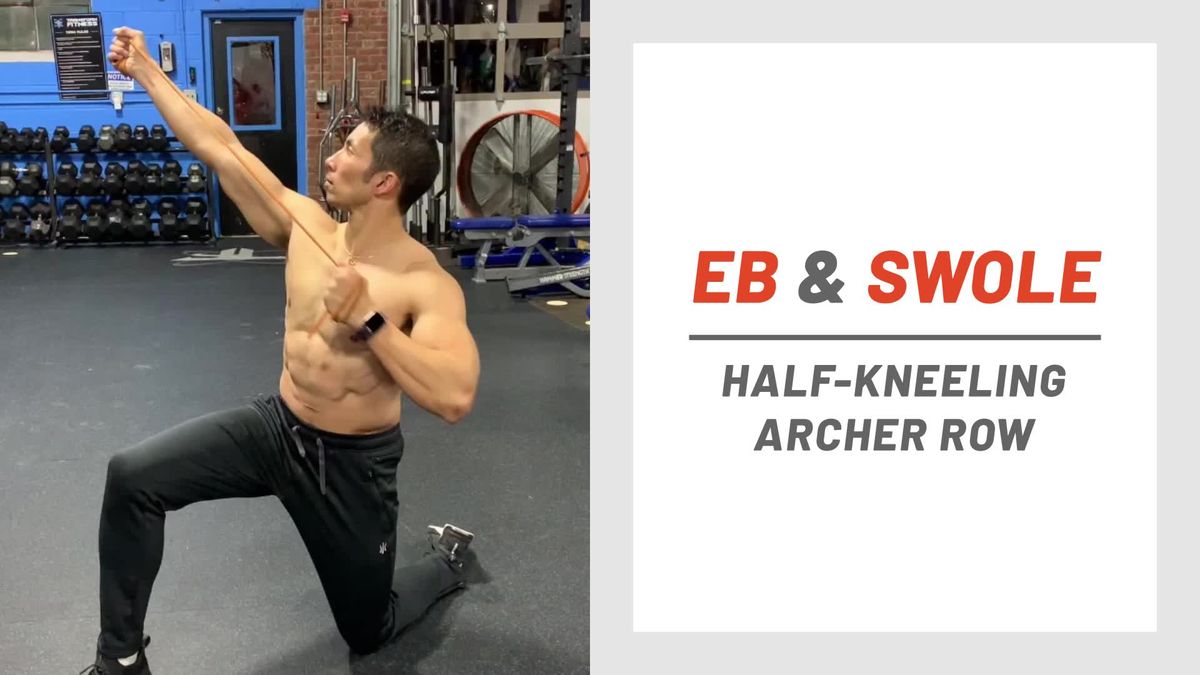
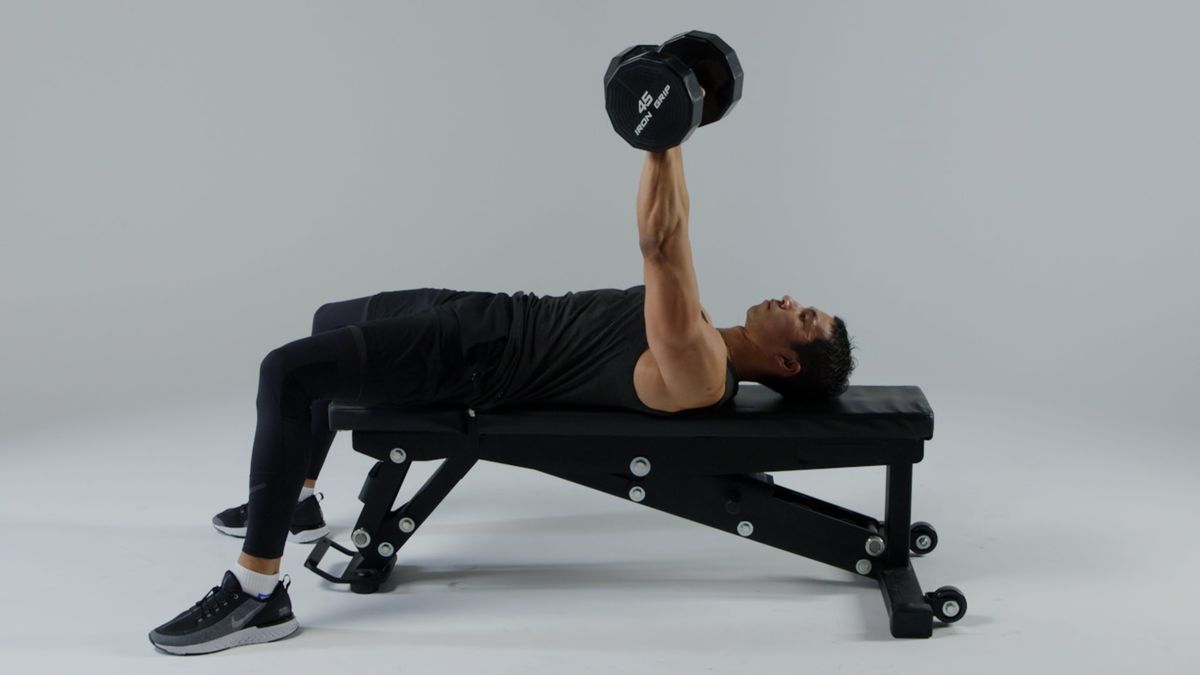
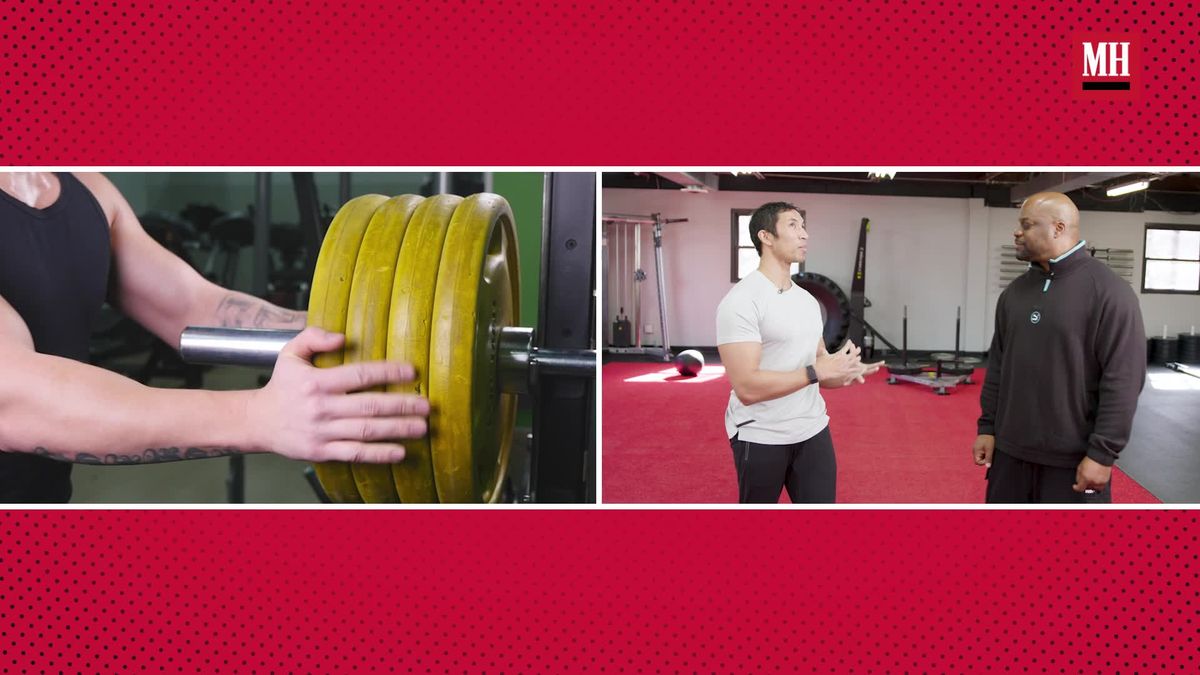
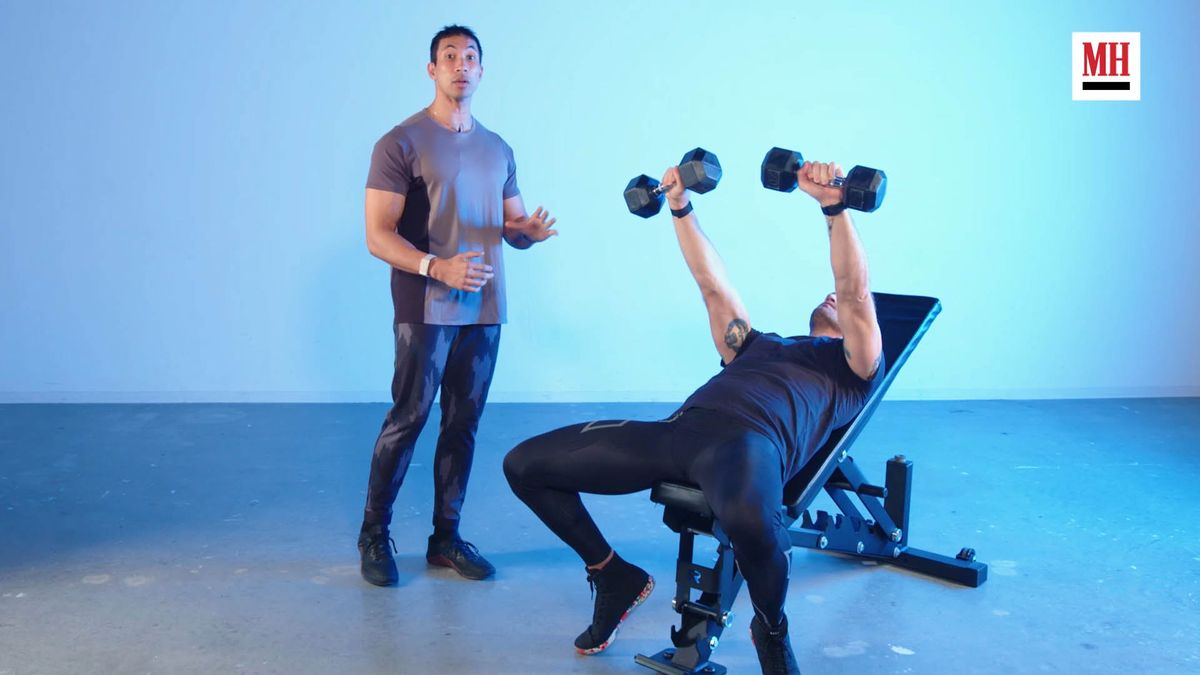
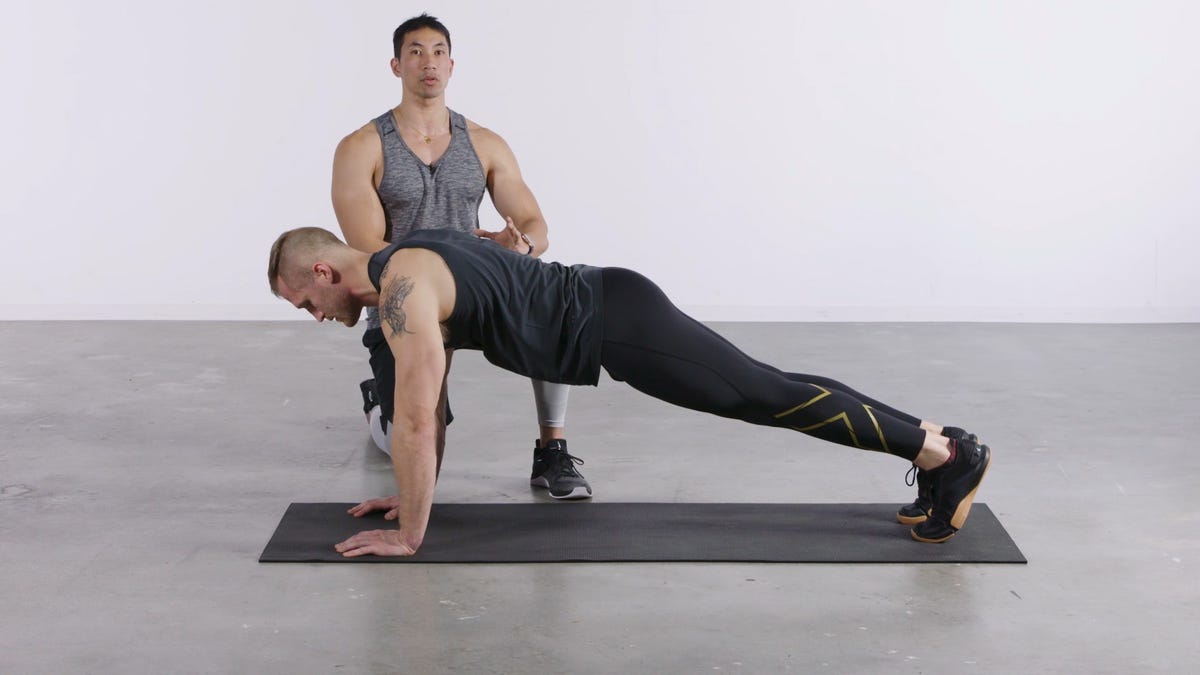
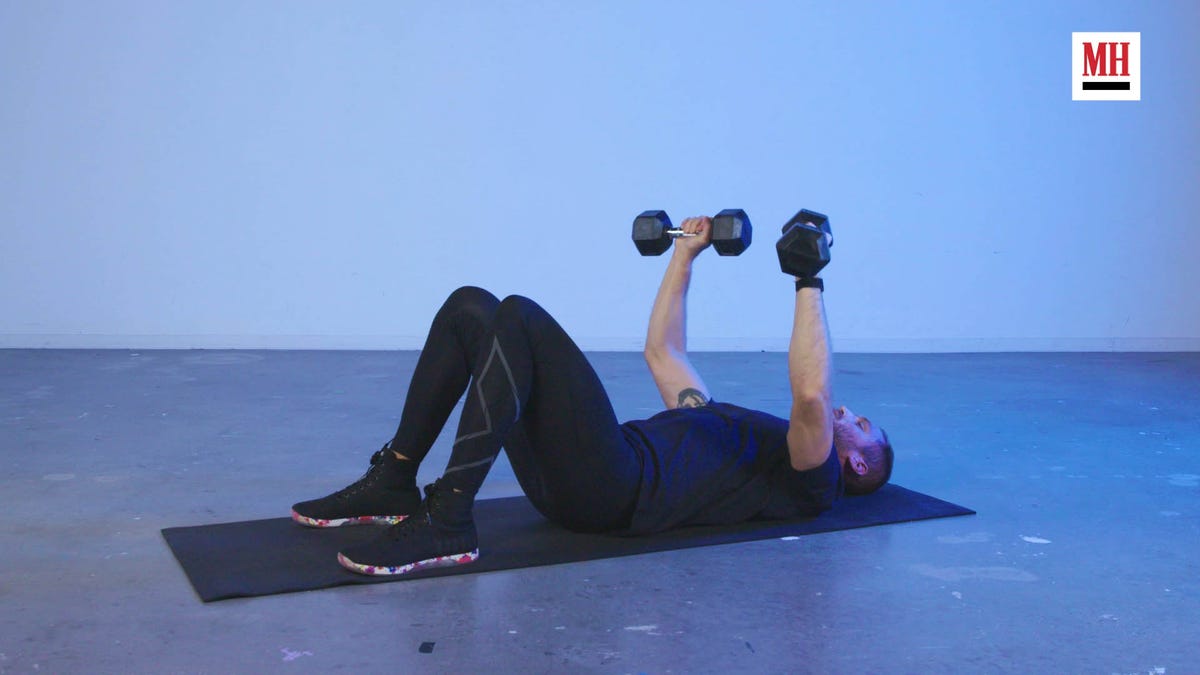
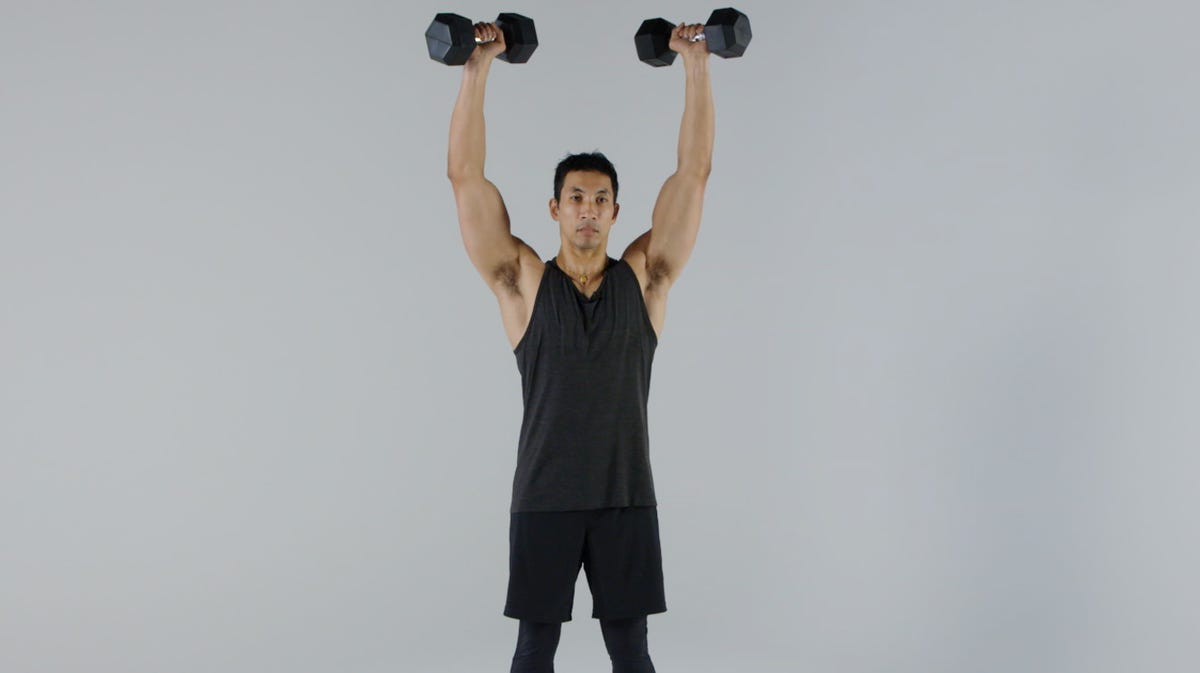
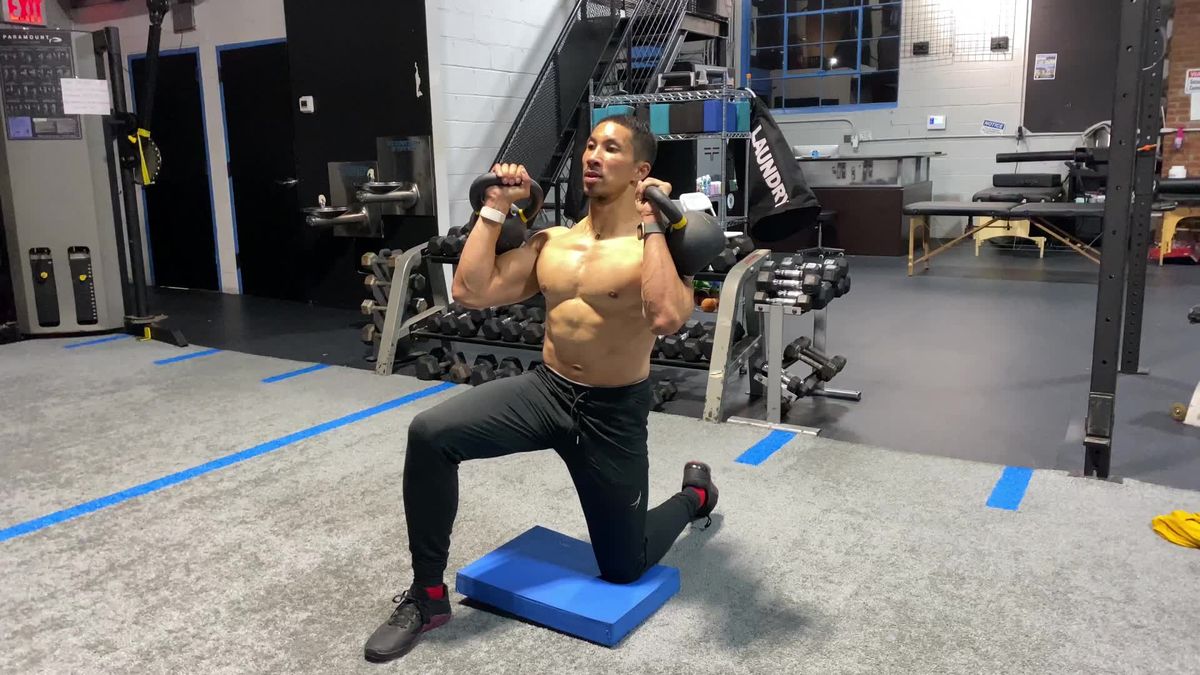
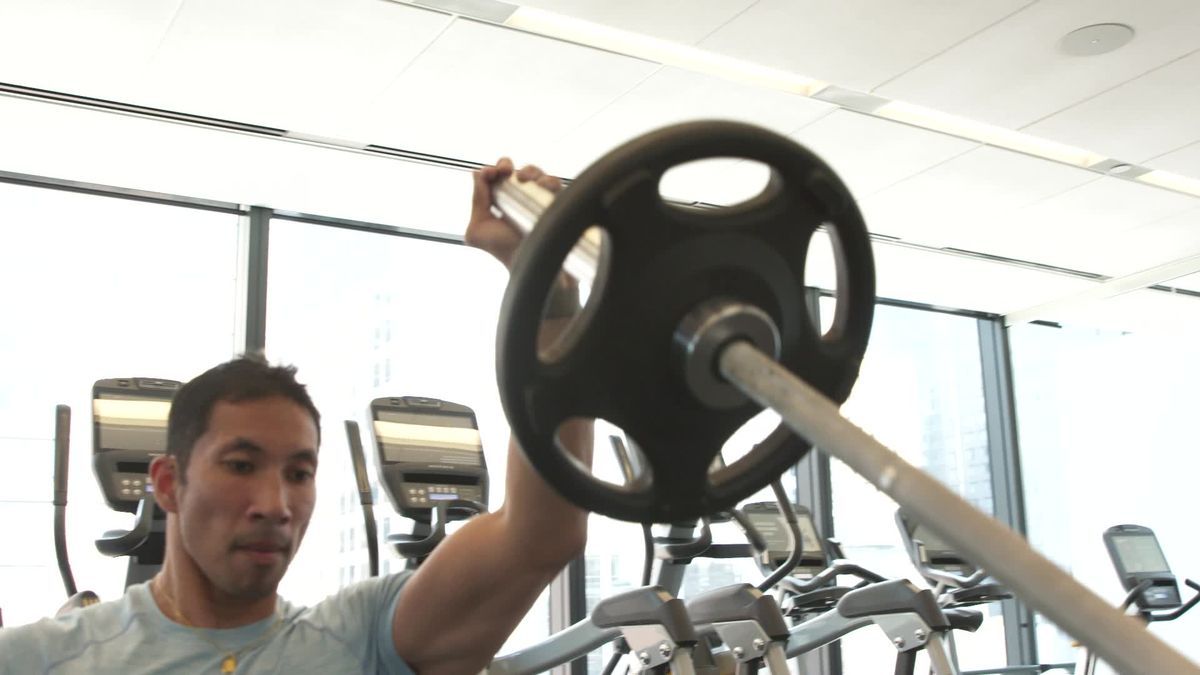
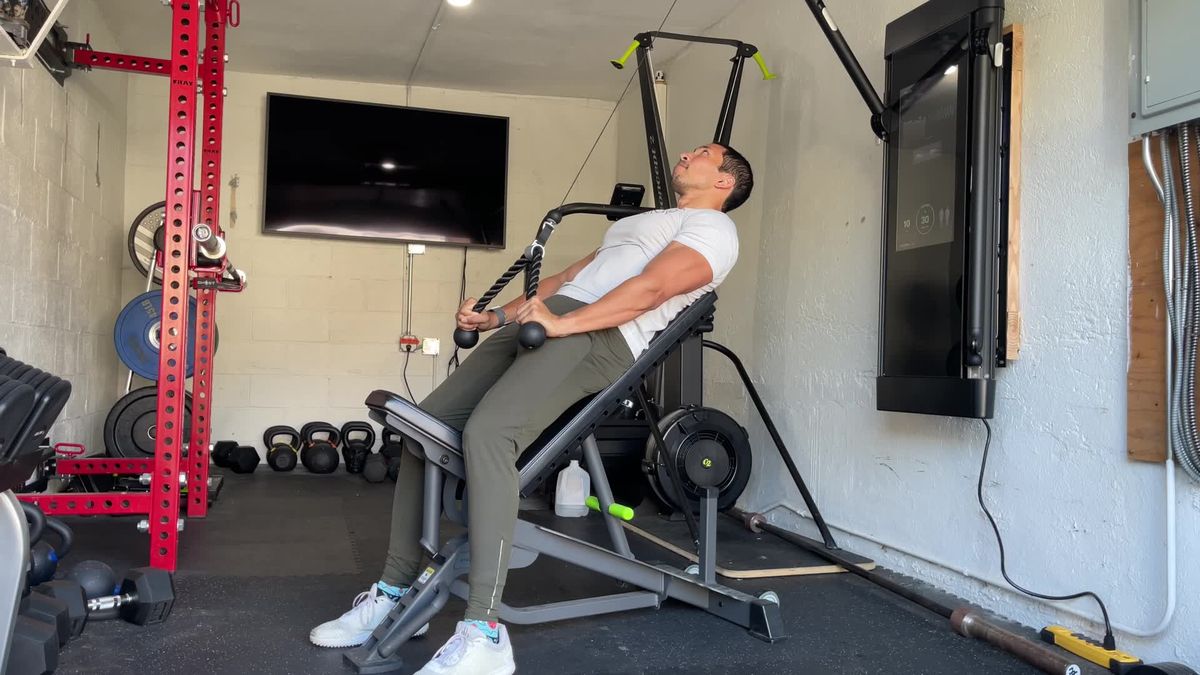
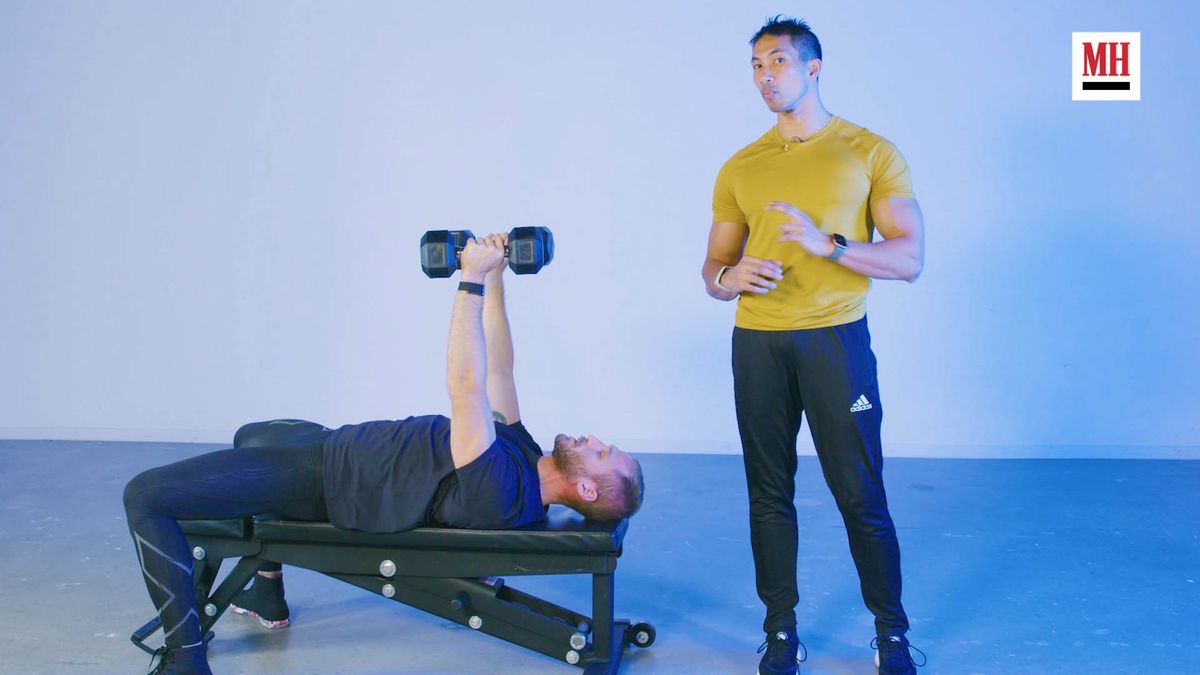
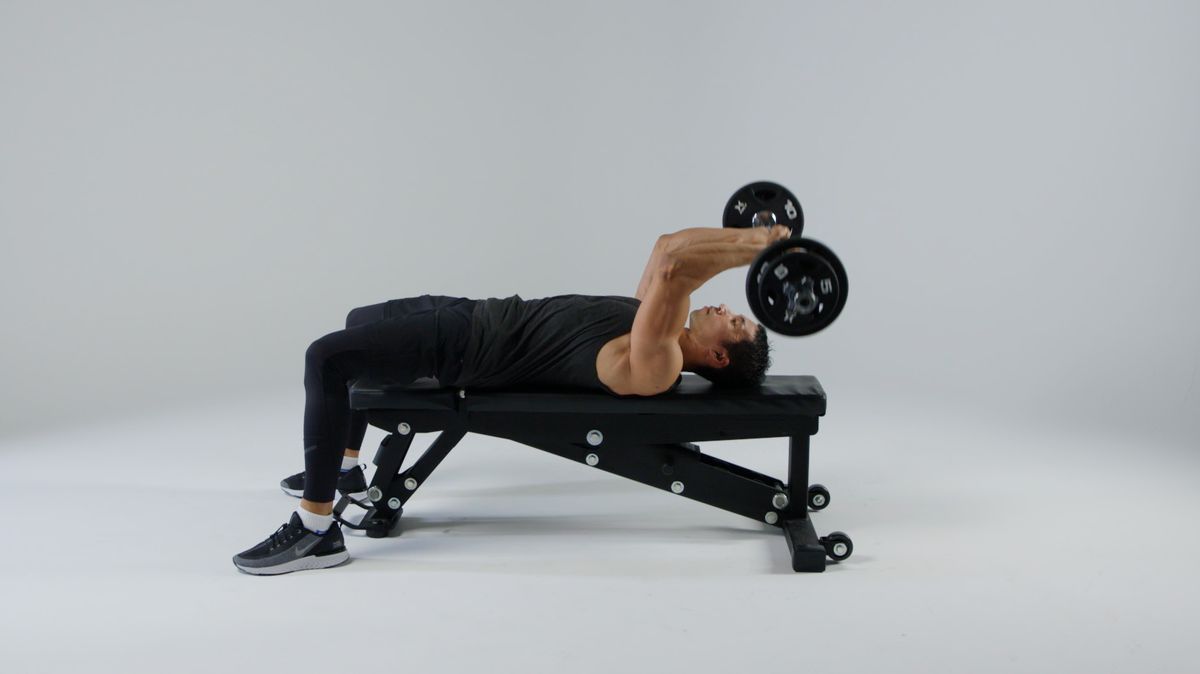
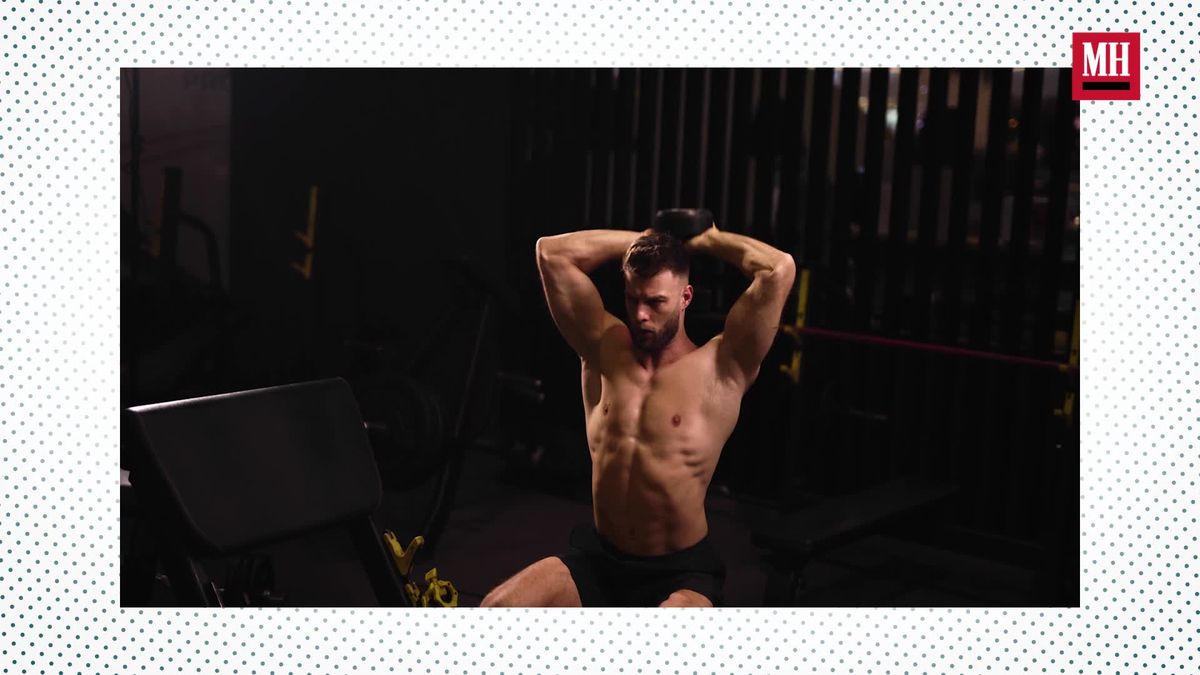
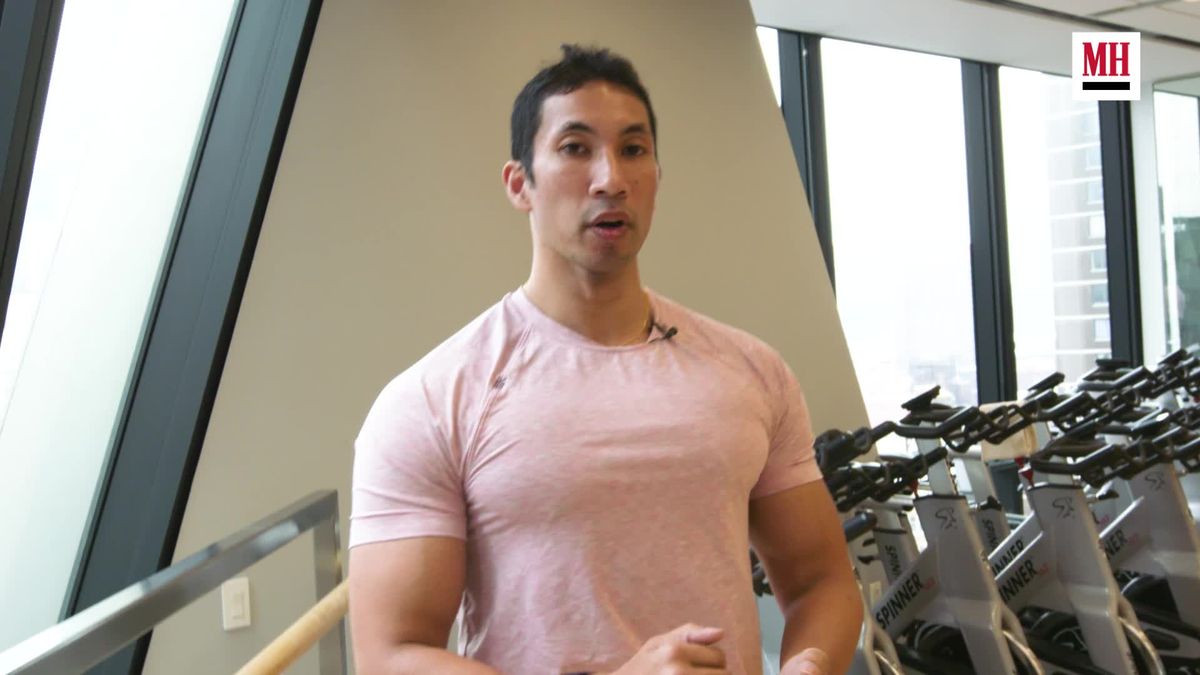
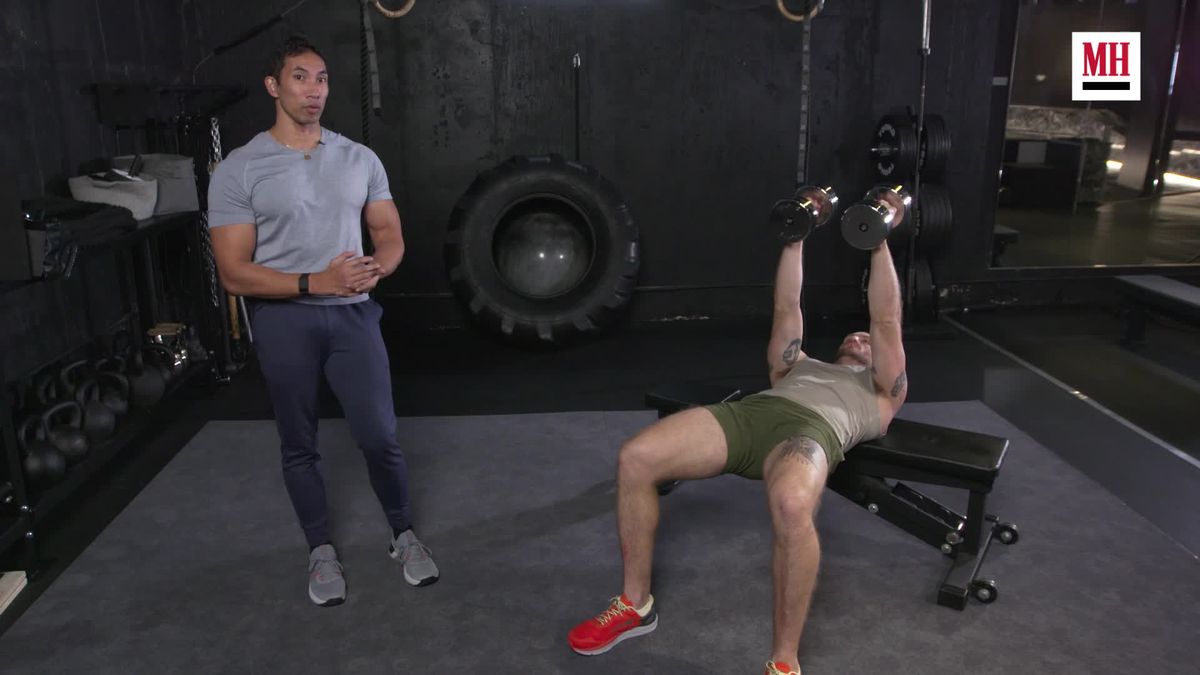
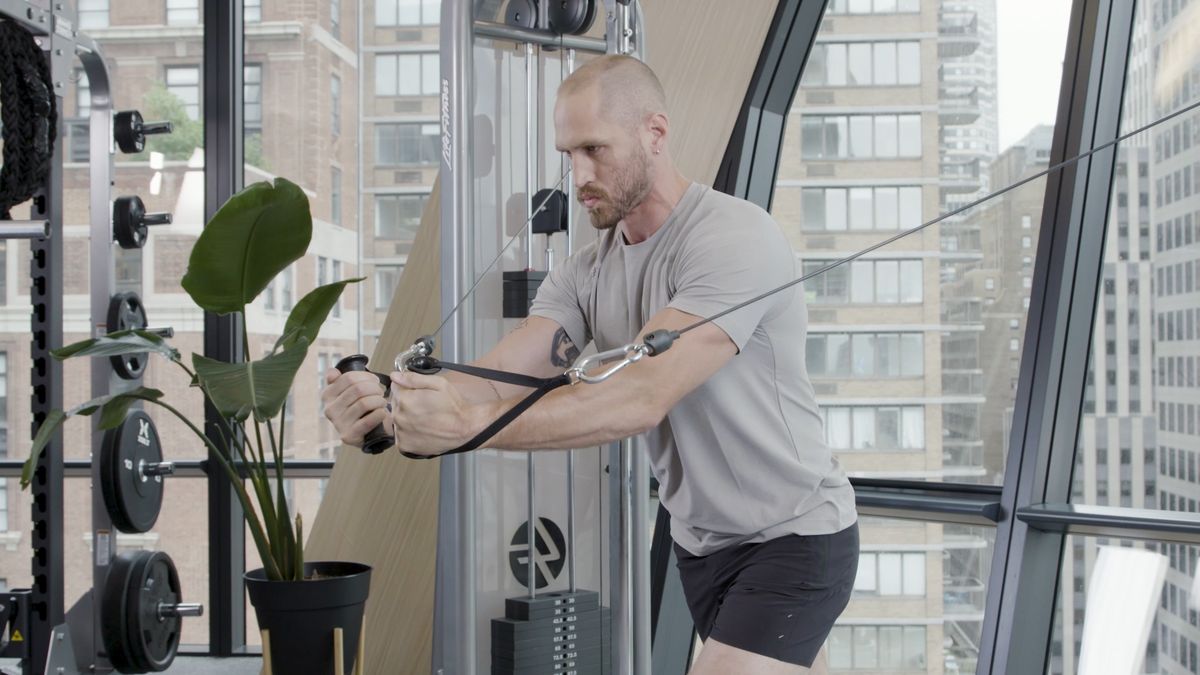
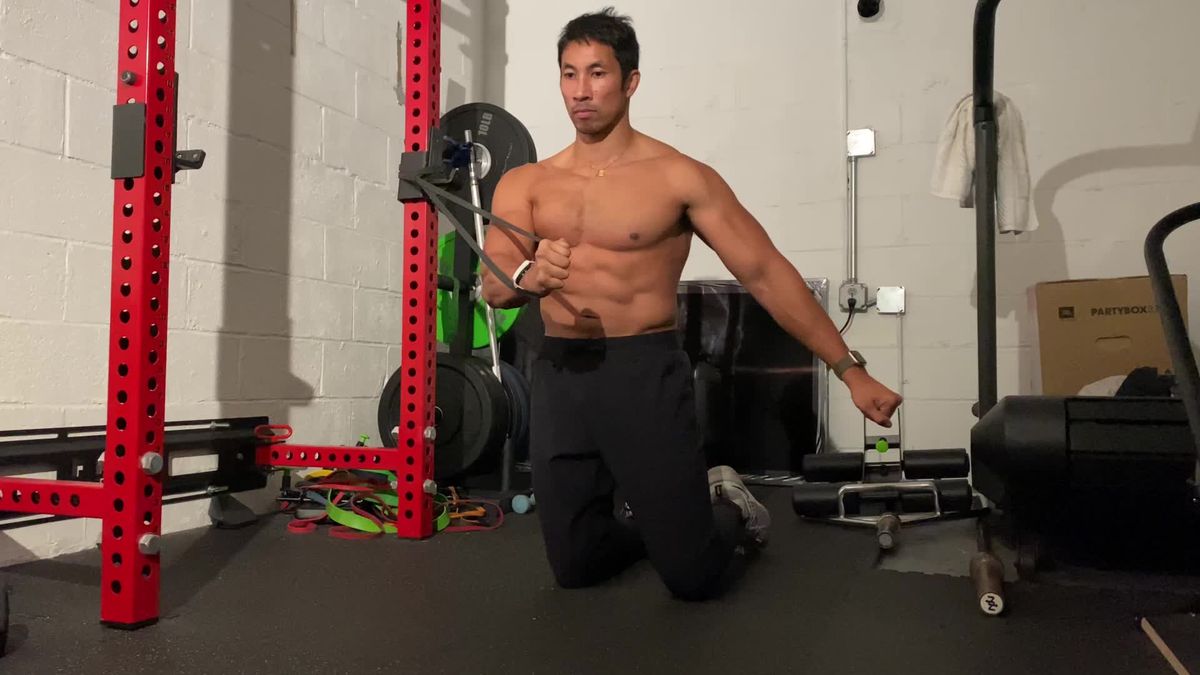
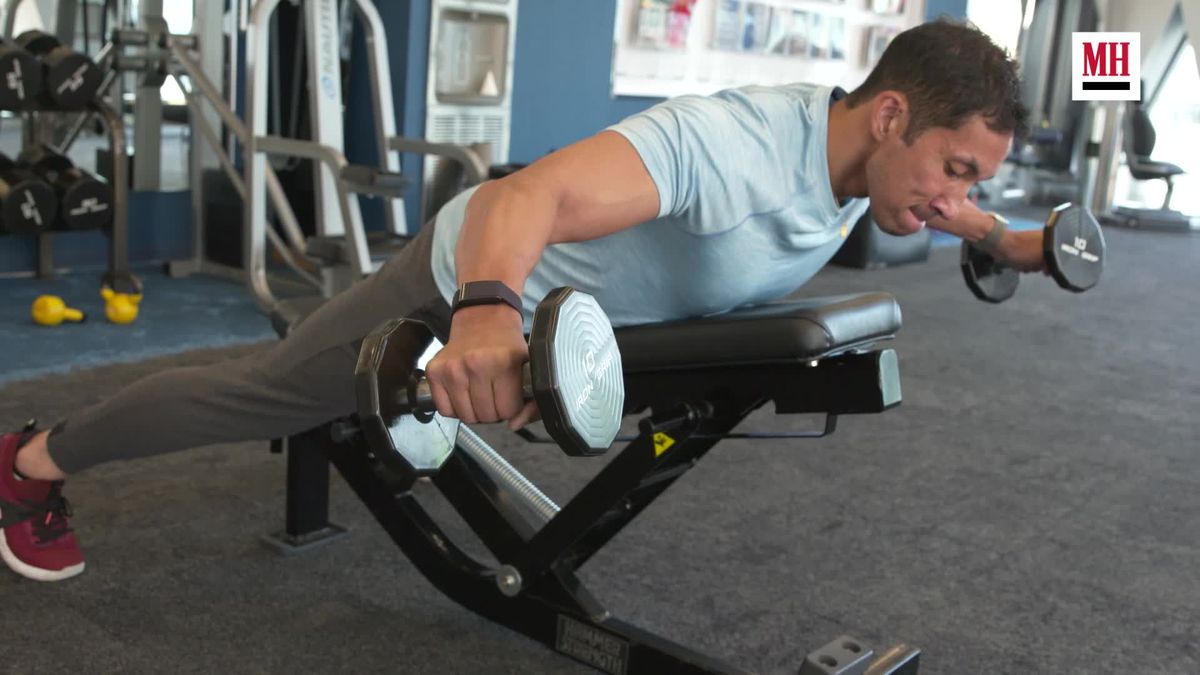
Comments are closed.